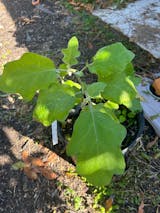Growing Organic Bean Salad Mix Sprout Seeds
Using either a seed sprouting jar, sprouting tray, terra cotta sprouter, or hemp sprout bag, add about 1/4 cup Organic Bean Salad Mix sprouting seeds to your container and allow seeds an initial soaking for 6-8 hours. After initial soak, continue to rinse bean sprout seeds 2-3x per day and immediately drain, not allowing water to sit and soak. Rinse seeds 2-3x per day for 2-4 days, keeping Bean Salad Mix sprouts fresh, crunchy, and hydrated without waterlogging. Organic Bean Salad Mix sprout seeds are quick to harvest in just 2-4 days, ready for fresh use with a crunchy, nutty, and mild blend and a kick of spicy radish. Non-GMO Organic Bean Salad Mix sprouting seeds grow a protein-dense sprout fortified with Fiber, Iron, Calcium, Potassium, Magnesium, Fiber, Vitamins A, B, C, E, Omega-3 and Omega-6 Fatty Acids with a complete and balanced 140 calories per cup.
Inside The Organic Bean Salad Mix
Organic Mung Bean: Vigna radiata, simply known as mungbean, is also known throughout the world by a variety of names including "gram", "maash", and "moong". Domesticated to much of eastern Asia and the Indian subcontinent, the mung bean is a traditional staple used as both a sweet and savory component to entrees and desserts in Chinese, Filipino, and Indian cuisines.
Organic Adzuki Bean: Vigna angularis, more commonly known as adzuki bean or red mung bean, is an international sensation that has been cultivated in Asia for millenia along with the mung and soybean. Adzuki is already a nutrient-dense bean essential to many diets but, when sprouted, increases nutrient content, especially in fiber, by as much as 300%. Adzuki is often boiled, sweetened, and mashed into a red mung bean paste, often serving as the base for additional flavoring for numerous dishes in both Chinese and Japanese cuisines.
Organic Green Lentil: Lens culinaris, or more commonly known as green lentil, is one of the earliest domesticated crops ever and is still going. Although a delicious and widely grown sprouting seed, non-GMO Lens culinaris is a popular cover crop traditionally sown in the fall to replenish nitrogen content in garden soil while breaking up tough soils. Green lentil is cultivated for its firm roots known to help minimize garden erosion, improve soil tilth and structure, while bolstering weed suppression.
Organic Daikon Radish: Raphanus sativus var. longipinnatus, or more commonly known as Daikon radish or even falsely "white carrot", is native to much of eastern Asia, but has since domesticated throughout most of the world. These root crops have become more popular as a cover crop within the last decade because of their ability to protect the soil from weeds while adding nutrients back to the soil. Daikon radish's hardy and solid roots are able to provide deep channels in the soil that enrich neighboring and subsequent crops.
Basic Info
| Flavor: |
Crunchy, nutty, and mild blend with a kick of spicy radish |
| Nutrients: |
Protein, Fiber, Iron, Calcium, Potassium, Magnesium, Fiber, Vitamins A, B, C, E, Omega-3 and Omega-6 Fatty Acids |
Growing Info
| Recommended Seeding: |
1/4 cup per quart jar, sprouting tray, terra cotta sprouter, or sprout bag |
| Initial Soak Time: |
6-8 hours |
| Days to Harvest: |
2-4 days |
Other Info
| Difficulty: |
Medium |
| Rinse Frequency: |
2-3 times per day |
| Calories: |
About 140 calories per 1 cup serving |







